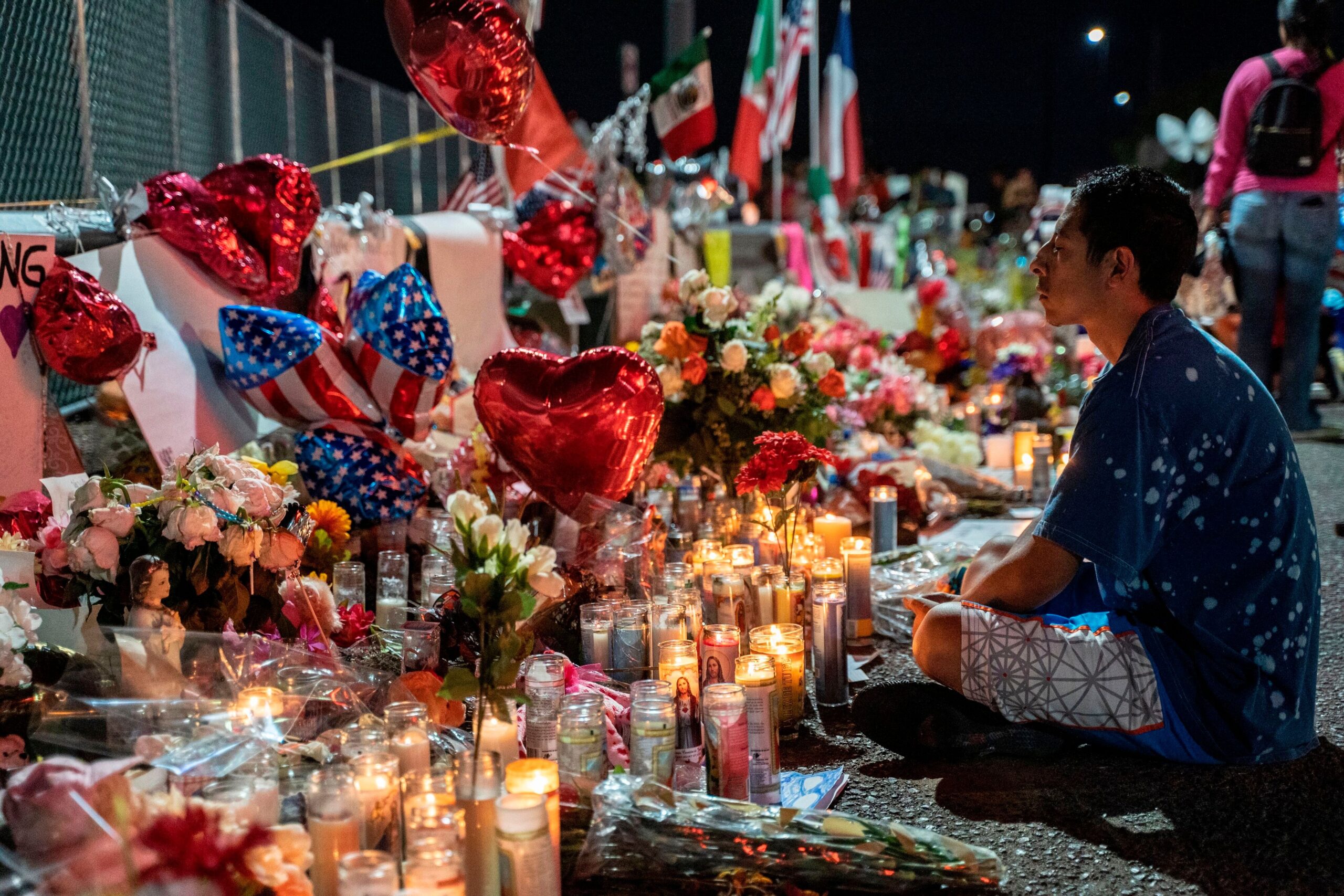2019 Was The Deadliest Year For Hate Crimes On Record, New FBI Data Shows
More people were killed in hate crimes last year in America than in any year since 1992, when the FBI first started recording such killings, new data shows.
Fifty-one people lost their lives to hate crimes in 2019, according to annual statistics the FBI released on Monday. That’s a 112% increase over the year before.
The bulk of last year’s hate crime killings occurred on Aug. 3, 2019, when a gunman shot and killed 23 people inside a Walmart in El Paso, Texas, in an attack apparently targeting Latinos.
But 2019 would have been a record year for deadly hate crimes even without the massacre in El Paso, according to Brian Levin, executive director of the Center for the Study of Hate and Extremism at California State University.
“We’ve seen a terrible increase in homicides,” Levin told HuffPost, adding that there “seems to be a shift where extremism has become much more of a do-it-yourself operation.”
“Lone assailants,” Levin explained, are being radicalized in a “subculture where this kind of directed violence is becoming legitimized.”

In April 2019, for example, a gunman opened fire inside a synagogue in Poway, California, killing one person. The gunman reportedly called 911 after the shooting, explaining he’d targeted the synagogue because Jews were trying to “destroy all white people.”
There were 7,314 total hate crimes last year, according to the FBI’s annual Uniform Crime Report, a 2.7% increase from the year before and the highest number of recorded hate crimes the FBI has recorded in a single year since 2008.
Hate crimes, according to the FBI’s definition, are crimes motivated by bias against a person based on their race, religion or sexual orientation, among other factors.
As in previous years, the majority of hate crime victims — about 58% — were targeted due to their race or ethnicity. Nearly half of those targeted for their race were Black.
There was a 14% increase in anti-Jewish hate crimes, from 835 in 2018 to 953 in 2019.
Anti-Hispanic hate crimes rose for the fourth consecutive year, increasing by 9%.
There was also a 19% increase in hate crimes targeting people based on their gender identity in 2019, after a startling 40% increase in 2018.
The FBI’s annual hate crime statistics, however, offer a woefully incomplete picture of hate crimes in the U.S. That’s because law enforcement agencies aren’t required to send their hate crime statistics to the FBI, and thousands of agencies make no attempt to do so.
Moreover, of those agencies that do send their statistics to the FBI, many either underreport their hate crimes or incorrectly report having had zero.

About 86% of law enforcement agencies that sent their hate crime statistics to the FBI in 2019 reported they’d seen no hate crimes in their jurisdictions.
This, according to a statement Monday from the Lawyers’ Committee for Civil Rights Under Law, is “statistically, a near impossibility.”
“As advocates working with communities and law enforcement agencies at the local level, we know that hate crimes are occurring and are deeply disturbed that these crimes do not get reflected in the data,” Arusha Gordon, associate director of the Lawyers’ Commitee’s James Byrd Jr. Center to Stop Hate, said in a statement.
“When communities and individuals are targeted in a hate crime, and law enforcement fails to capture the bias-motivated nature of the crime in their reporting,” Gordon said, “that sends a message to the community that law enforcement fails to understand what hate looks like.”
This problem is compounded by the fact that victims often don’t trust police and therefore don’t report hate crimes to law enforcement.
A national survey conducted by the U.S. Bureau of Justice Statistics found that between 2003 and 2015, there were likely 250,000 hate crimes per year across the U.S, the vast majority of which went unreported to police, and thus to the FBI.
A piece of legislation introduced in 2018 seeks to improve law enforcement’s handling of hate crimes.
The Khalid Jabara-Heather Heyer NO HATE Act — named for two people whose murders were at one time not included in hate crime statistics — would require the federal government to improve its collection of hate crime data.
“Passing this bill represents a critical step in tackling the scourge of hate in our country as a policy problem — one that requires accurate data collection, appropriate funding, and coordinated local and federal action to even begin to solve,” Nikki Singh, policy and advocacy manager at the Sikh Coalition, said in a statement on Monday.
“Especially given the dangerously divisive political climate of the past four years, we should be reckoning with the problem of hate in America — not continuing to sweep it under the rug,” she added.

Despite its problems, experts still consider the FBI’s annual hate crime statistics report to be one of the best available indicators of hate in the U.S.
The data released by the FBI this week showed some disturbing trends, Levin, the executive director of the Center for the Study of Hate and Extremism at CSU, told HuffPost.
“The violence is getting worse,” Levin said, pointing to a rise in the number of 2019 hate crimes that included homicides, aggravated assaults and simple assaults.
Levin has been at the forefront of documenting a rise in hate crimes during the presidency of Donald Trump, who lost his reelection bid earlier this month. Hate crimes have risen during Trump’s time in the White House, with surges occurring after particularly bigoted or incendiary statements from the president.
Levin says he’s worried about how an emboldened “hard militant right, which includes neo-fascists and white supremacists,” will react once Trump is no longer president and they “perceive their connection to the mainstream has been cut.”
“So we will now have an insurgency,” Levin predicted. “What level of insurgent activity, I don’t know.”
Published at Mon, 16 Nov 2020 21:54:16 +0000

